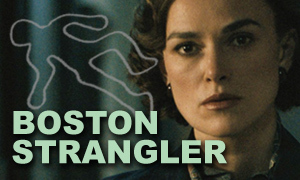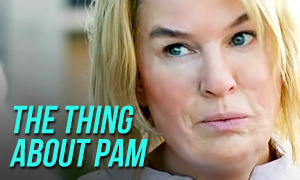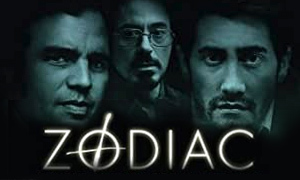Black Bird: History vs. Hollywood
Taron Egerton
Born: November 10, 1989
Birthplace:
Birkenhead, Cheshire, England, UK
James "Jimmy" Keene
Born: New Year's Eve
Birthplace: Kankakee, Illinois, USA
Paul Walter Hauser
Born: October 15, 1986
Birthplace:
Grand Rapids, Michigan, USA
Larry Hall
Born: December 11, 1962
Birthplace: Indiana, USA
Ray Liotta
Born: December 18, 1954
Birthplace:
Newark, New Jersey, USA
Death: May 26, 2022, Santo Domingo, Dominican Republic
Big Jim Keene
Born: June 24, 1937
Birthplace: Dixon, Illinois, USA
Death: November 28, 2004
Greg Kinnear
Born: June 17, 1963
Birthplace:
Logansport, Indiana, USA
Deputy Sheriff Gary Miller
Born: January 7, 1952
Birthplace: Hoopeston, Illinois, USA
Renamed Brian Miller in the Miniseries
Robert Wisdom
Born: September 14, 1953
Birthplace:
Washington, D.C., USA
Lawrence Beaumont
Bio: Federal Prosecutor |
Renamed Edmund Beaumont in the Miniseries
Sepideh Moafi
Born: September 18, 1985
Birthplace:
Regensburg, Bavaria, West Germany
Special Agent Janet Butkus
Bio: FBI Agent | Renamed Lauren McCauley in the Miniseries
Jake McLaughlin
Born: October 7, 1982
Birthplace:
Paradise, California, USA
Gary Hall
Born: December 11, 1962
Birthplace: Indiana, USA
Bio: Larry Hall's Twin Brother
Tony Amendola
Born: August 24, 1951
Birthplace:
New Haven, Connecticut, USA
Vincent 'The Chin' Gigante
Born: March 29, 1928
Birthplace: New York City, New York, USA
Death: December 19, 2005, Springfield, Missouri, USA
Was James Keene a star high school football player?
Yes. The Black Bird true story confirms that James "Jimmy" Keene was a star football player and captain of Illinois' Kankakee Eastridge High School football team in the early 1990s. He also lettered in wrestling and track. According to his book, the main reason he started dealing marijuana was because they had become so poor after his parents' divorce, it was a means of survival. Upon finishing high school, Jimmy was recruited for his skills as a running back by major out-of-state universities, but moving away meant that he would have to give up his thriving marijuana business. Instead of accepting one of the four football and wrestling scholarships offered to him, he decided to remain close to Chicago and play football for Triton, a community college with a locally renowned football program.
Is Black Bird based on a book?
Yes. The Apple TV+ miniseries is based on James Keene's 2010 book In with the Devil: A Fallen Hero, a Serial Killer, and a Dangerous Bargain for Redemption. An expanded version of the book was released in the summer of 2022 with the title Black Bird: One Man's Freedom Hides in Another Man's Darkness. Like the miniseries, the book explores James "Jimmy" Keene's attempt to befriend suspected serial killer Larry Hall in order to get him to divulge information that will prevent him from being released on appeal.
Why was James Keene sentenced to 10 years in prison?
The former Chicago-area drug dealer was arrested in 1996 by the DEA and FBI for conspiracy to distribute drugs. Jimmy had been earning more than a million dollars annually and had become one of Chicago's biggest independent operators, focusing mostly on marijuana and to some degree cocaine. He used the money in part to help get his father, Big Jim Keene, out of debt and then to financially build him up. Jimmy took a plea on the drug charge and was sentenced to ten years in a minimum-security prison with no chance of parole. Federal prosecutor Lawrence "Larry" Beaumont (renamed Edmund Beaumont in the series) had advised him to plead guilty in hopes that he would be given a lighter sentence. Unfortunately, the plan didn't work and Jimmy was sentenced to a decade behind bars.
How many people is Larry Hall suspected of killing?
In researching the true story, we discovered that federal prosecutor Lawrence Beaumont believed that suspected mass murderer Larry DeWayne Hall was responsible for more than 20 killings. Of Larry Hall's victims, only one body has been discovered, that of Jessica Roach. -In with the Devil
Is James Keene the son of a police officer?
Yes. Exploring the Black Bird fact vs. fiction, we learned that James Keene's father, who is portrayed mostly by the late Ray Liotta in the Apple TV+ miniseries, had been a decorated police officer in the Chicago area, as well as a firefighter. He went by the name Big Jim Keene. James's parents divorced when he was 11, which in the book he says put an end to his happy childhood.
After his father retired, James and his dad started a number of businesses together, ranging from construction and trucking to frozen food. However, James said that "the businesses never worked out the way we hoped" and actually lost money. The actor pictured below (right) portrays Big Jim Keene during his younger years.
Why was Larry Hall sentenced to life in prison?
Suspected serial killer Larry Hall was sentenced to life in prison for the 1993 kidnapping and rape of 15-year-old Jessica "Jessi" Roach, whose remains were found in a cornfield not far from Perrysville, Indiana, approximately 20 miles from where she had been abducted in Georgetown, Illinois. Despite signing a written confession that he abducted Roach, sexually assaulted her, and murdered her by strangling her with a belt, investigators could never find enough physical evidence to charge Hall with the murder (he had retracted his confession and claimed he'd actually been referencing dreams he'd been having). He also claimed his confession was coerced. Investigators were unable to pinpoint exactly where Hall killed Roach, and they knew little about what happened from the moment she entered Hall's vehicle to when her remains were discovered.
A Black Bird fact-check confirms that Jessica Roach's parents knew that the police and FBI had the right man in custody. When Larry Hall confessed, he described finding Jessica walking her bike up a narrow road. Jessica's parents had told her to do this since their narrow road wasn't safe. It was a detail they had never told the press.
Was James Keene offered an early release if he could get Larry Hall to divulge information that would make Hall's conviction stick?
Yes. In 1998, ten months into James "Jimmy" Keene's ten-year sentence (with no possibility of parole), federal prosecutor Lawrence Beaumont presented him with a deal. If he agreed to transfer to a maximum-security prison in Springfield, Missouri that housed the criminally insane and was able to get alleged serial killer Larry Hall to confess to his crimes and divulge previously unknown information, Keene would be granted an early release from prison. Beaumont was hoping most that Keene could get Hall to confess to the murder of Tricia Reitler, including where her body was buried. At first, Keene said no to Beaumont's proposition, believing that it would be too dangerous. He told Beaumont that he didn't have any experience with serial killers.
"What happens when I gotta deal with all these crazy killers and stuff, you know. What if I get shanked? What if I get killed? I mean, am I gonna survive this?" Keene recalled wondering at the time (Dateline). At the urging of Beaumont and his lawyer, Keene accepted the deal. However, in the weeks that followed, Keene had second thoughts and even told his lawyer that he wanted to back out of the deal.
Did James Keene decide to take the deal in hopes he could get out of prison to be with his ailing father?
Yes. James Keene's father, Big Jim Keene, portrayed by Ray Liotta in the miniseries, had a sudden stroke while James was wavering about whether to take the prosecutor's deal. James believed that the reason his father's health had faltered was because of the stress he'd caused him. A sickly and frail Big Jim came to the prison in a wheelchair to visit his son. "The whole left side of his face drooped, especially the corner of his mouth," James recalled in the book. "His eye was almost closed and the left side of his body was slumped over."
After the visit, the younger Keene was fully committed to taking federal prosecutor Lawrence Beaumont's deal to go undercover at the maximum-security prison MCFP Springfield and befriend suspected mass murderer Larry Hall, hoping that doing so would ensure an early release. James could be of no help to his ailing father sitting in prison.
Was the prosecutor concerned that Larry Hall's conviction might be overturned without more evidence?
Yes. The federal prosecutor, Lawrence Beaumont, was very concerned that Larry Hall's defense would succeed in getting his second conviction overturned (the guilty verdict from Hall's first trial had been overturned on appeal), resulting in the suspected serial killer walking free. In fact, when Beaumont and Jimmy Keene met to discuss the deal, Hall was waiting for the court to consider his appeal. A basis for both of Hall's appeals was that his confession had been coerced. Sending Keene in undercover to befriend Hall was the prosecution's best shot at getting additional incriminating information to keep Hall locked up for good.
Did James "Jimmy" Keene get cold feet as he approached the prison that housed suspected serial killer Larry Hall?
Yes. It's true that Jimmy got cold feet while he was in the van outside the prison with the U.S. Marshalls. In the early morning hours as the sun was coming up, the prison looked like a "medieval castle". He got cold feet because he was being asked to trust the man who had wronged him before his trial, the prosecutor, Larry Beaumont. Seeing the prison brought into a clear focus just how dangerous the whole mission was going to be. "Look, man. I can't do this," he told them. "I can't. This whole thing's off. Let's just go back." They pleaded with him to go inside and promised him that Larry Beaumont wouldn't back out of the deal. After some persuading, Jimmy agreed to go in. -In with the Devil book
What was Jimmy Keene's cover story while in the maximum-security prison?
Concocted by federal prosecutor Lawrence "Larry" Beaumont, Keene's cover story while in the prison for the criminally insane was that he was a convicted weapons runner who was pushed over the edge upon learning he would have to serve 40 years in prison. Keene could relate to the cover story since he had felt a somewhat similar sense of shock when he learned he would have to serve ten years on a drug conspiracy charge. "The life went right out of me," Keene recalled of hearing the judge pronounce his sentence. -In with the Devil
Is Lauren McCauley a real FBI agent?
Sepideh Moafi's character, Lauren McCauley, is loosely based on retired FBI Special Agent Janet Butkus, who worked for the FBI in Springfield, Illinois at the time James Keene went undercover in the maximum-security prison MCFP Springfield. Agent Butkus is a niece of legendary Chicago Bears linebacker Dick Butkus. The miniseries fictionalizes her character a bit. Unlike Agent Lauren McCauley in the miniseries, Agent Janet Butkus wasn't present during Keene's arrest, nor was she present when he was presented with the deal to go undercover into MCFP Springfield. Federal prosecutor Lawrence Beaumont (renamed Edmund Beaumont in the series) was the one who presented the deal to Keene.
In researching the Black Bird true story, we learned that Janet Butkus, the real-life FBI agent, did pretend to be James Keene's girlfriend while visiting him at MCFP Springfield to gather updates on how his undercover work was going. Keene states in his memoir that Janet (called Janice in the memoir) even kissed him to help establish their cover. Janet Butkus retired from the FBI in 2016.
Is Joe Williamson's character, CO Carter, based on a real prison guard?
No. In the miniseries, CO Carter threatens to blow Jimmy Keene's cover unless he gets him cash. Joe Williamson's character is entirely fictional. There was no real-life prison guard who tried to extort Keene. -Devil Details: A Podcast for Black Bird
Did a mob boss befriend Jimmy Keene while in prison?
Yes. In answering the question, "Is Black Bird accurate?" we learned that Genovese crime family boss Vincent "The Chin" Gigante befriended Jimmy and advised him not to associate with child killers like Larry Hall. The Chin would visit Jimmy's cell, play bocce ball with him outside, and eat breakfast with him. This made it difficult for Jimmy to speak to Larry during the day, so he began stopping by Larry's cell at night. Prior to entering prison, The Chin had been known to walk the streets of New York City in his bathrobe, earning him the nickname "The Oddfather."
Did Jimmy Keene gain Larry Hall's trust by beating up another inmate?
Yes. About two weeks into his undercover work at the maximum security prison, Keene and Hall were watching America's Most Wanted (one of Hall's favorite shows) in a prison TV room when a muscular black inmate came in and abruptly turned off the TV. Seeing an opportunity to gain Hall's trust, Keene got up and turned it back on. The inmate jumped up and threatened Keene before he again turned off the TV. Once more, Keene switched it back on. The man approached Keene and cocked his arm back to swing. Keene landed four quick punches to the face, which sent the inmate falling backward through some chairs. Keene then got on top of him and gave him a beating until the guards hurried in and broke it up. Like in the Apple TV+ miniseries, analyzing the Black Bird fact vs. fiction confirms that the incident strengthened Keene's bond with Hall. -In with the Devil
Did James Keene get Larry Hall to divulge information about his crimes?
Yes. The Black Bird true story reveals that James Keene did befriend Larry Hall and gained his trust. The two began having regular conversations and for a period of almost six months, Hall divulged information about as many as 20 of his crimes involving young women. At one point, Keene brought up Tricia Reitler, one of the young women Hall was suspected of killing. According to Keene's book In with the Devil, he got Hall to admit to burying Tricia Reitler's body "in a place that was way out in the country." However, he was unable to get a precise location. Without a body, there wouldn't be enough to convict Larry Hall of murder.
"Without Tricia Reitler's body, I did not complete my mission," Keene states in the book, "and I didn't know what [the prosecutor] Beaumont was going to do about that." Despite not getting the location, he did complete much of his mission by getting the confessions out of Hall, who admitted to killing Reitler and Jessica Roach.
Did James Keene see Larry Hall with a map that possibly revealed the areas where his alleged victims' bodies were located?
Yes. Not long after James "Jimmy" Keene's conversation with Larry DeWayne Hall about the murder of 19-year-old Tricia Reitler, Keene discovered Hall in the prison workshop with a map that had numerous red dots scattered all over it. Keene also noticed 10 to 15 little wooden falcons lined up on the table. Each falcon had the dimensions of a "good-sized chess piece." Keene asked Hall about their significance. Hall responded, "They watch over the dead, Jimmy." Keene quickly concluded that the red dots were the locations where Larry Hall had buried his victims.
"That map of Illinois, Indiana, and Wisconsin had little red dots all over it," Keene told Dateline. "You'd look down at this map and you could see all of those little spots are burial spots where he's got somebody."
Was James Keene sent to solitary confinement for telling Larry Hall what he really thought of him?
Yes. After seeing Larry Hall's map, Keene hurried to a pay phone and called the number for his FBI contact, Agent Janet Butkus. He couldn't reach her since it was late at night, but he left a message telling her to come get him. He told her he had gotten the confessions and had seen Larry Hall's map and wood-carved falcons. He figured that the FBI would get the message and come to retrieve the map and falcons the following day before Hall could mail them to his brother. He believed he had completed his mission and would be going home within 24 hours as the FBI had promised him in their signed agreement.
He decided to finally let out the disgust and anger toward Hall that he had been bottling up ever since Hall had opened up about some of his brutal crimes against young women. "I went across to his cell over there," recalled Keene. "The repulsiveness I felt about him throughout the whole time I had to stay being his friend and the disdain and dislike I had for him, that I thought it was good for me to unload on him and tell him what I really thought of him and who he really was. I said, 'You know, I'm gonna be going home tomorrow, Larry,' and I said, 'You're a crazy killer,' and I started calling him everything you can think of."
Keene's FBI contact never got back to him, and his only contact inside the prison, the chief psychiatrist, was on vacation. The FBI's promise of getting him out within 24 hours of completing his assignment was about to fall through. Larry Hall's psychologist at the prison scolded Keene for upsetting Hall and turning him into an emotional wreck. She told the guards, "Grab him, take him, and throw him in the hole." The federal prosecutor, Lawrence Beaumont, didn't know what had transpired or where Keene went. It was as if Keene had disappeared. Agent Butkus later claimed that her phone system had lost his message. It wasn't until two weeks later when Keene's internal contact in the prison, the chief psychiatrist, returned from vacation and discovered what had happened.
Did the FBI ever recover Larry Hall's map and falcons?
No. In investigating the Black Bird fact vs. fiction, we discovered that at some point in the two weeks after James Keene let loose verbally on Larry Hall and was sent to the hole, the suspected serial killer got rid of the map that pointed out the general locations of his victims. It's likely that he either mailed the map to his brother or destroyed it. After Keene unloaded on him, Hall figured out that Keene had only befriended him to get information. "Beaumont sent you, didn't he?" Hall said to Keene the next morning. Keene admitted he should have waited a few more days before revealing his true feelings to Hall.
"People probably wouldn't understand the mounting pressure, that kettle's ready to boil over at any time, ya know, and it just felt good to unload on the guy," James Keene told Dateline. "I'm disappointed I didn't wait another day or two at least. I should have waited a few more days." However, Keene pointed out that the confessions and information he got from Hall led to the reopening of several cold cases that may have involved the alleged serial killer. "I did a good deed, and I did a lot of good things. And that's where I feel the redemption comes in. I've done something good for the things that I did wrong." The information Keene got out of Hall was instrumental in Hall losing his appeal and remaining in prison.
Keene pointed out that even if the map had been recovered, each red dot represented hundreds of miles of area to search, an impossible task unless Hall revealed more information about his victims' locations. It's worth mentioning that Hall did later give the coordinates of where two bodies could be found. However, when a team went out and dug up the area, they found nothing. FBI forensics experts concluded that this was likely because Hall had buried each of his victims in a dissolving acid cocktail he had learned to make from living and working in a cemetery his whole life.
In researching how accurate is Black Bird, we discovered that like in the miniseries, the FBI apologized for not acting on Keene's message and for letting him sit in solitary confinement for two weeks. His other contact, the prison's chief psychologist, apologized for being unreachable for two weeks due to the fact he was on vacation. Had the FBI taken immediate action, the map and falcons likely could have been recovered.
Did James Keene still get released early from prison despite not getting the location of Tricia Reitler's body?
Yes. Keene passed a polygraph with regard to the confessions and other valuable information he obtained from suspected mass murderer Larry Hall. The polygraph convinced Assistant U.S. Attorney Lawrence Beaumont that Keene had succeeded. In total, he got confessions pertaining to Hall's involvement in the disappearance of 20 different young girls. Some of the confessions were recorded via a bug that Keene planted in Hall's cell. Like in the Black Bird series, the new evidence was the main reason that the judge in Hall's case denied his appeal.
"I succeeded in a very big way and kept him locked up for life, and to never ever be free to roam around in society and be able to kill other people's young daughters," he told History vs. Hollywood. "That was the primary goal of the mission and finding the bodies would have been secondary."
Prosecutor Lawrence Beaumont told Keene that he did a great job and a great deed for society. He convinced the sentencing judge to give Keene credit for his work despite not getting the location of Tricia Reitler's body. In addition to facilitating Keene's early release from prison, Beaumont agreed that his record should be scrubbed clean. Keene's conviction, eight years of parole, and a $2.5 million fine were all erased. "I do not even have a traffic ticket on my record," he stated to History vs. Hollywood.
Keene's mission was the first and only time in history that a federal undercover operation like that had ever been undertaken at a maximum security prison. In fact, Beaumont had made five attempts before the U.S. Department of Justice finally agreed to the operation. Such operations have since been banned for fear of the civilian's safety.
What became of James Keene after he was released from prison?
James Keene was released from prison in 1999 after serving a total sentence of approximately 17 months. His father, Big Jim Keene, was still alive at the time, and he got to spend five more years with him before his death in November 2004 at age 67. Keene has been a successful businessman for much of his life, running two multi-million dollar legal businesses that he started in 1988. He became a bestselling author after writing the 2010 book In with the Devil about his experience going undercover. In addition to being an executive producer on Black Bird, he has been a producer on other film projects as well, including two that will start filming in 2023. His latest book, The Wanderer: Bigamy, Deceit, and Murder, tells the real-life story of two FBI agents on the hunt for a killer in Nashville. His 2023 book, The Chicago Phoenix, is the thrilling follow-up to Black Bird. It focuses on his time in the drug business and his efforts to rebuild his life after his release and full pardon, a journey that took him all the way to Hollywood.
Prior to Taron Egerton portraying him in the Apple TV+ Black Bird miniseries, Brad Pitt had been signed to portray Keene. Pitt was attached to the project for approximately 12 years and eventually aged out, becoming too old to play a 28-year-old character. During that time, Johnny Depp had been signed to portray alleged serial killer Larry Hall. The delay in development was due to the fact that Pitt, Keene, and Paramount had been unhappy with the scripts written by William Monahan (The Departed).
Keene said that he was "elated" that the late, great Ray Liotta (Goodfellas) had portrayed his father "Big Jim" – a policeman and fireman, who he personally witnessed saving countless lives. "This man was a hero," Keene said of his father. "I love him endlessly. I learned more from my dad than I ever did in any college or out on the street, he gave me the best education of my life. He was my best friend. Having Ray Liotta play my dad was huge. He was a legend. I couldn't have thought of a better person to play my dad."
Was suspected serial killer Larry Hall ever convicted of murder?
No. A Black Bird fact-check verifies that despite confessing to the murder of Laurie Depies in 1992 and to the kidnapping, rape and murder of 15-year-old Jessica Roach in 1993, Larry DeWayne Hall was never convicted of murder due to a lack of evidence to substantiate his claims. Like in the Apple TV+ miniseries, he had recanted his confessions and claimed they had been events in dreams he had. He also recanted everything he confessed to James Keene while in prison. However, it was clear that he knew very specific things that only the killer could have known.
Does James Keene have a cameo in Black Bird?
Yes. Keene portrays a prison guard in the series finale. "He cameoed in the show, which was great fun, at a very intense, emotional, dramatic part of the story," recalled actor Taron Egerton. "[It was] surreal for both of us. But also, I think he felt quite emotional about it because it was a huge episode in his life." Egerton described Keene as being "a really nice guy" who "seemed really pleased and excited and grateful that we were going to such pains to tell his story in the best way we could."
Egerton continued, "I got on very, very well with him when he did join us on set... I got the impression that, for him – and I've felt this before from other people I've played – when they watch an actor bring their story to life (provided it's being done in a respectful, considerate, thoughtful way), I think they normally feel an incredible sense of kinship. I hope he still feels that way." -Radio Times
Where is Larry Hall now?
Alleged mass murderer Larry Hall is currently imprisoned at the Federal Correctional Complex in Butner, North Carolina where he is serving a life sentence with no chance of parole. Still to this day, the FBI holds James Keene in high regard for his role in preventing Hall from becoming a free man and stealing the futures of more young women and girls.
Link-to-Learn More:







